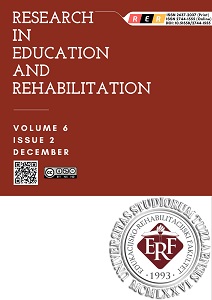Transforming Healthcare: The Role of NGOs in Promoting and Building a P4 Medicine Health System
Transforming Healthcare: The Role of NGOs in Promoting and Building a P4 Medicine Health System
Author(s): Sanja Selimović, Stanko Blatnik, Ana Miloš, Paulina PerušinaSubject(s): Civil Society, Welfare systems, Social development, Health and medicine and law
Published by: Edukacijsko-rehabilitacijski fakultet Univerziteta u Tuzli
Keywords: P4 medicine; non-governmental organization; support; education;
Summary/Abstract: P4 medicine, with its focus on predictive, personalized, preventive, and participatory healthcare, has potential to transform traditional model of medicine. This article examines the principles and potential impact of P4 medicine, emphasizing role of non-governmental organizations (NGOs) in promoting and building a P4 medicine health system. The analysis explores two Erasmus+ projects, Train4inclusive and SNATCH, which involve NGOs and highlight their significant contributions to the implementation of P4 medicine. NGOs can contribute to P4 medicine through advocacy, awareness, research, innovation, policy development, collaboration and partnerships. By raising awareness about P4 medicine, advocating for its principles, and collaborating with stakeholders, NGOs can drive positive change in healthcare systems. The Train4inclusive project focuses on educating trainers working with people with disabilities to monitor their progress in organized sports activities. This project contributes to personalized monitoring, data collection, analysis, collaboration, and knowledge exchange within the context of P4 medicine. The SNATCH project educates swimming trainers and teachers about healthy lifestyle factors, aligning with the principles of P4 medicine, including a holistic approach, prevention, wellness, personalized education, behavioral changes, and collaboration. The implementation of P4 medicine requires active participation of all stakeholders, including NGOs, small businesses, healthcare providers, researchers, technology developers, and general population. Timely education and preparation are crucial for a successful transition to P4 medicine. Furthermore, while not specifically analyzed in this article, the role of Artificial Intelligence (AI) in P4 medicine is expected to be significant, with AI-powered personal health agents playing a fundamental role in delivering personalized and proactive healthcare.
Journal: Research in Education and Rehabilitation
- Issue Year: 6/2023
- Issue No: 2
- Page Range: 148-153
- Page Count: 6
- Language: English

